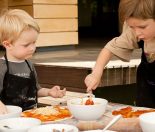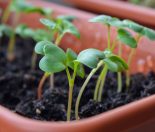The word ‘sustainable’ comes with a lot of fish hooks attached. It seems simple enough – the dictionary definition is “able to be continued.” It’s when you start to think about it that the problems appear.
Most of us automatically associate sustainability with protecting the environment and avoiding pollution. That is a perfectly valid part of the wider definition of sustainability and something we all need to work at. But it’s not all there is. You may be frantically recycling and re-using but your life may still be unsustainable in a different sense.
The biggest issue for most New Zealanders trying for a sustainable (ie able to be continued) lifestyle is the unsustainable cost of housing, especially in our bigger cities. If you have a mortgage that requires both adults in your household to work fulltime, you may have a bit of a problem, especially if one of you gets made redundant or suffers a cut in hours. If you also believe that your life is substandard unless you have the latest in vehicles (even if it is a fuel-efficient hybrid), expensive furniture and an overseas holiday at least every two years, you might have an even bigger problem. And then there’s the apparent need to send your kids to private schools, at eye-watering cost, in order to make sure they can also have lives like yours.
That probably sounds extremely cynical. But it’s reality for many families. And it’s just as unsustainable as the nightmare at the other end of the socioeconomic scale, where the ‘ability to continue’ is threatened on a weekly or even daily basis by unexpected car repairs, the need for new school shoes, the need to make a visit to the doctor, or even the horrible decision of whether to pay the power bill or eat.
At the bottom end, where there simply isn’t enough money to go round no matter what you do or how efficiently you budget, the only thing that will help,in the long term, is a society that recognises the importance of families being supported to raise their children in a stable, loving and dignified environment – one with enough money to ensure they are not derailed by minor emergencies. That might just mean a certain amount of reassessment of needs and wants, at a whole-of-society level.
For kids to grow up healthy, happy, innovative members of society, it is not compulsory to have a large house in a flash suburb. Neither are overseas holidays particularly important, or expensive schools. Having parents who are actively involved in their lives (and have the time to be so) certainly does matter. Having a secure, loving environment with adequate food, a warm, dry house, good healthcare and good quality education also matters. It probably costs twice what our poorest families can muster, and about a twentieth of what our richest ones think it has to cost.
Living sustainably in cities like Auckland may be impossible, unless you’ve inherited the family estate or are paid an extremely high salary. If you’re thinking about moving to one of our bigger cities to advance your prospects, this might be a good time to reconsider. If you want to spend your time in traffic jams, if you want to join the rat-race of taking your children, be they willing or not, to endless sporting and cultural activities in between a full school day and the huge amounts of homework deemed necessary by the ‘best’ schools, and if you can guarantee never to get sick or lose your job, it might work out well. If that scenario concerns you a little, there may be alternatives.
How important is your career, compared to your life and the life of your family? What matters more – time or money? How important is the look of your house and the age of your car? What matters most about a holiday – the location, or the people?
Thinking about those things, maybe it’s possible to have a more genuinely sustainable life by:
- living in a smaller city, or even a rural town, and scaling back your career ambitions
- working to live rather than living to work, and maybe even both working part-time rather than fulltime so you can spend more time with your family.You might then be able to make things and build things and cook things that you would otherwise be too tired or too busy to do and would have to pay someone else for
- enjoying the place you’re in rather than longing to go elsewhere, frequently, in a plane or by long road trips and then watching the bank balance being drained on a daily basis as you pay for exotic entertainments.
From the point of view of your children, giving them the time and space to just play, unorganisedly, outdoors and without time constraints, might be the best thing you could do for them. A very interesting book on the subject is “Free to Learn” by Peter Gray. It might change your life, and your family’s.
While you’re contemplating your options, you might like collect your thoughts over some home preserving: it’s easy, rewarding, massages the ego, and if you have the good fortune to have a garden, or friends with a garden, it can be very cheap. It’s also recently become trendy, but try to ignore that, and accept that you are merely doing what everyone did from necessity a mere generation or three ago. A few simple possibilities follow, all of which are expensive to buy, if you can even find them, but will cost you only a small amount of money and some time to make. They will also reward you for months afterwards.
Spiced Apple Butter
This is essentially spiced apple jam, and it’s wonderful. Rich with spices and thick so it spreads in a smooth layer on toast. Gorgeous!
- 2 kg good cooking apples. Cox’s Orange, Granny Smith or any of the true cooking apples like Ballarat which pulp well on cooking will do fine.
- 1 cup apple cider vinegar
- 2 cups water
- Sugar (likely to be about 4 cups, determined after cooking the apple mix)
- 2 tsp cinnamon
- ½ tsp ground cloves
- ½ tsp ground allspice
- Grated rind and juice of 1 lemon
Cut the apples into quarters without peeling or coring them. Cut out any damaged parts.
Put them in a large pot, add vinegar and water and cover.
Bring to the boil, then reduce heat to a simmer and cook for about 20 minutes, until the apples are soft.
Spoon out the apple mix into a large metal sieve and push the pulp through the sieve with a wooden spoon into a large bowl.
Measure the volume of puree you have produced.
Add ½ cup sugar for every cup of apple puree.
Add the spices, lemon rind and juice.
Return to the heat and cook, stirring constantly to make sure it doesn’t stick to the bottom of the pan. With good quality cooking apples you will only need to do this for about half an hour. The mix becomes thick and smooth.
Place in sterilised jars and seal.
Homemade Tomato Sauce
Basil Pesto
It’s easy to make, and doesn’t need to be expensive if you use almonds or cashews instead of pine nuts. (Most people can’t tell the difference, either!) It’s best stored in small quantities (about 2Tbsp is handy) in small zip lock bags in the freezer. Once thawed, it should be preferably used immediately, or stored in the fridge and used within a couple of days, so it’s best to keep it in small containers. It should keep for up to a year in the freezer.
It’s worth trying ‘lettuce leaf” basil, available from Kings Seeds: the plants produce enormous leaves which are wonderful for pesto.
- 2 cups basil leaves, lightly packed in a measuring cup by pressing down on them with your hand
- 2 large cloves garlic, peeled and chopped
- ½ cup olive oil
- ¼ cup grated parmesan
- ¼- ½ cup nuts – this can be pine nuts, or almonds, or cashews. You might even get away with peanuts
- Salt and pepper to taste
Wash the basil leaves, then put all the ingredients into a food processor and whizz until smooth enough for your taste. Check the seasoning and add salt and pepper to taste.
Pack in 2-Tbsp lots in small zip lock bags and place in the freezer. This recipe will produce roughly half a dozen portions.








